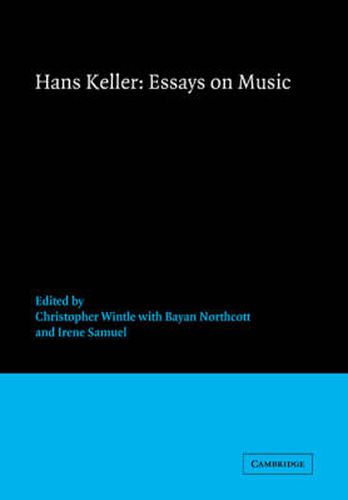Readings Newsletter
Become a Readings Member to make your shopping experience even easier.
Sign in or sign up for free!
You’re not far away from qualifying for FREE standard shipping within Australia
You’ve qualified for FREE standard shipping within Australia
The cart is loading…






Hans Keller (1919-1985) was one of the most brilliant and stimulating writers on music of his day, and this is the first large selection of his essays. His work draws on his rich and diverse experience as a string-player, composer, teacher, analyst and critic, and also reflects a deep interest in psychoanalysis. The first part of the book addresses psychological issues relating to critics, listeners, players and composers; the second analyses music by a wide range of composers from Haydn to the present day; and the third propounds his new theory of music, with essays on unity and contrast, motifs, themes, keys, timbre and rhythm. There is also a ‘wordless functional analysis’ of a Mozart piano sonata published here for the first time. The volume concludes with a magisterial account of what Keller deemed to be ‘the principles of composition’.
$9.00 standard shipping within Australia
FREE standard shipping within Australia for orders over $100.00
Express & International shipping calculated at checkout
Stock availability can be subject to change without notice. We recommend calling the shop or contacting our online team to check availability of low stock items. Please see our Shopping Online page for more details.
Hans Keller (1919-1985) was one of the most brilliant and stimulating writers on music of his day, and this is the first large selection of his essays. His work draws on his rich and diverse experience as a string-player, composer, teacher, analyst and critic, and also reflects a deep interest in psychoanalysis. The first part of the book addresses psychological issues relating to critics, listeners, players and composers; the second analyses music by a wide range of composers from Haydn to the present day; and the third propounds his new theory of music, with essays on unity and contrast, motifs, themes, keys, timbre and rhythm. There is also a ‘wordless functional analysis’ of a Mozart piano sonata published here for the first time. The volume concludes with a magisterial account of what Keller deemed to be ‘the principles of composition’.